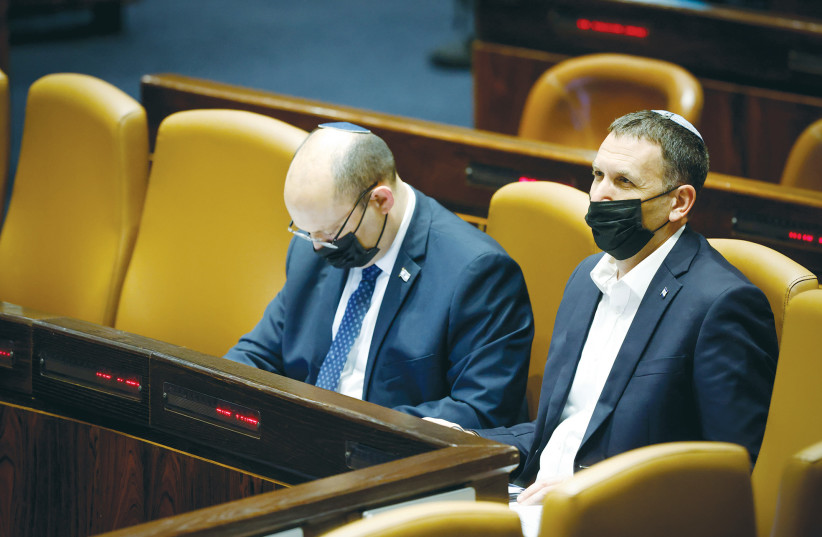A new poll taken for the Israel Democracy Institute asked about the public's preferences if the government would further lose its majority in the Knesset.
The poll found that 35.1% favor holding new Knesset elections, 28.9% prefer continuing with the current government as a minority government with some opposition party providing external support on certain issues and 32.3% would want a new government to be formed in the current Knesset without elections being held. The remainder, 3.7%, gave other responses.
Among Jewish respondents, a new government in the current Knesset was the most popular response. Among Arabs, elections were overwhelmingly preferred.
Both Jews and Arabs deemed the likelihood that the current government could last at least until the end of the year "quite low."
Asked to rate Bennett's policies for dealing with the security events of the last month with five being excellent and one being very poor, 10.3% of the public deemed them excellent, 20% gave them a 4, 20.3% a 3, 15.6% 2 and 29%.

Arab respondents overwhelmingly gave Bennett the lowest score while results among Jews were mixed.
When asked how they feel about Israel’s security situation in the foreseeable future, 37.7% declared themselves optimistic, 57.7% pessimistic and 4.6% declined to respond or said they did not know. Arab respondents were more pessimistic than Jewish respondents.
The poll of 601 men and women constituting a representative national sample of the entire adult population of Israel aged 18 and older had a maximum sampling error of ±3.65%.
